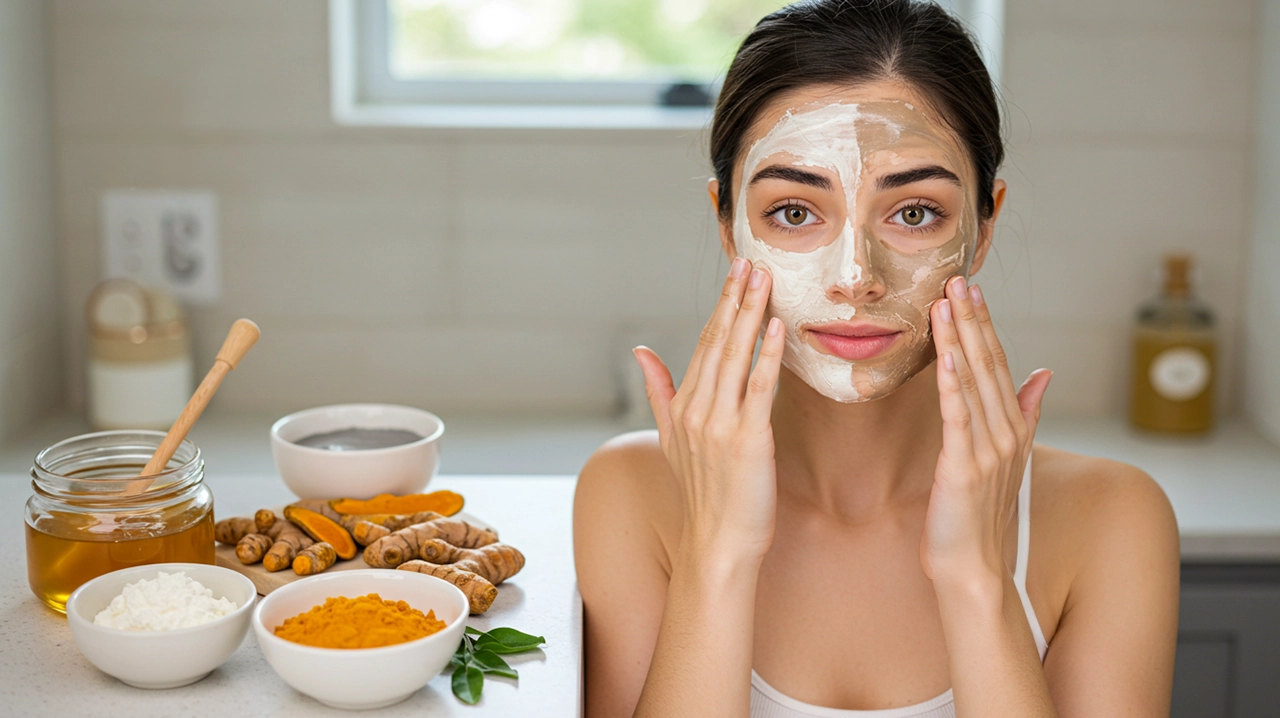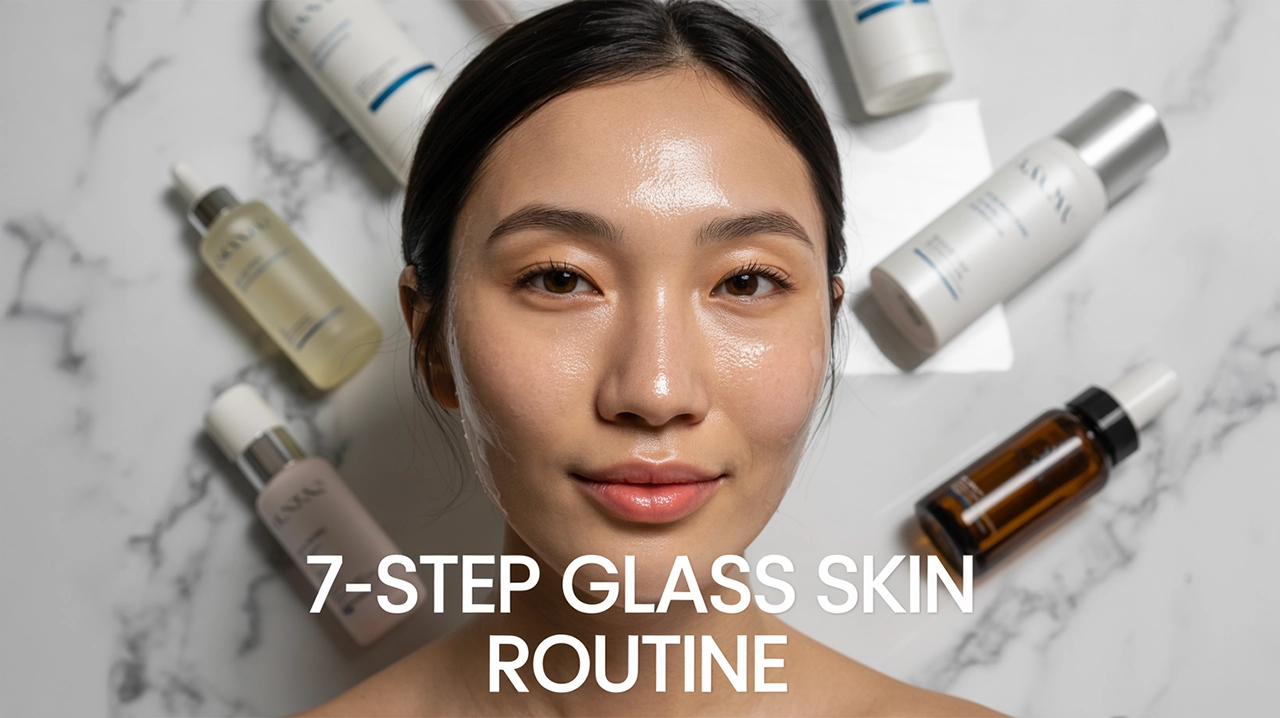

Are you tired of feeling lost in the endless sea of skincare products and conflicting advice? Do you dream of having that enviable, healthy glow but don’t know where to start? Welcome to GlowUpMagic, your ultimate guide to achieving glowing skin, no matter your age or gender!
In a world where skincare can feel confusing and exclusive, we are here to simplify the process. We want to help you take charge of your skin’s health.
Whether you are new to skincare or an expert, our guide will help you. It covers the basics of healthy skin. You will also learn about the latest ingredients.
Get ready for a journey that will change you. We will look at routines for different ages.
We will also explore practices for everyone, no matter their gender. Plus, we will share key steps to achieve that desired glow. We’ll also dive into the lifestyle factors that can make or break your skincare efforts.
So, are you ready to unlock the secrets to healthy, glowing skin? Let’s dive in and discover the magic of GlowUpMagic together!
When it comes to achieving that coveted healthy glow, understanding the key components of skin health is crucial. Your skin is a complex organ. It has many layers and functions.
All these parts work together to protect you. They also help keep you healthy. Let’s dive into the essential elements that contribute to vibrant, healthy-looking skin.
1. Collagen and Elastin
Collagen and elastin are two proteins that play a vital role in maintaining your skin’s structure and elasticity. Collagen provides strength and firmness, while elastin allows your skin to stretch and bounce back. As you age, the production of these proteins naturally decreases, which can lead to fine lines and wrinkles.
Include vitamin C-rich foods in your diet
Use skincare products containing retinoids or peptides
Protect your skin from excessive sun exposure
2. Hydration
Proper hydration is essential for maintaining healthy, glowing skin. Well-hydrated skin appears plump, smooth, and radiant. The outer layer of your skin, called the stratum corneum, keeps moisture in. It also protects against outside stressors.
Drink plenty of water throughout the day
Use a humidifier in dry environments
Apply a moisturizer suitable for your skin type
Include hyaluronic acid in your skincare routine
3. Natural Oils
Your skin produces natural oils, also known as sebum, which help to keep it moisturized and protected. While excess oil can lead to acne and other skin issues, a balanced amount is crucial for maintaining healthy skin.
Avoid harsh cleansers that strip away natural oils
Use non-comedogenic products if you’re prone to oily skin
Consider using facial oils for added nourishment
4. Microbiome
Your skin’s microbiome is a small ecosystem of helpful bacteria. It protects against harmful germs and keeps your skin healthy. A balanced microbiome contributes to a clear, radiant complexion.
Supporting your skin’s microbiome:
Use gentle, pH-balanced cleansers
Incorporate probiotic-rich foods into your diet
Consider skincare products with prebiotic or probiotic ingredients
5. Antioxidants
Antioxidants are important for protecting your skin. They help fight damage from free radicals. These free radicals come from things like UV rays and pollution. They help prevent premature aging and maintain a healthy, glowing appearance.
Boosting your skin’s antioxidant defenses:
Eat a diet rich in colorful fruits and vegetables
Use skincare products containing antioxidants like vitamin C, E, and green tea extract
Apply a broad-spectrum sunscreen daily
Now that you know the key parts of skin health, it’s important to see what can affect your skin. By identifying these influences, you can take proactive steps to maintain healthy, radiant skin.
1. Age
As you age, your skin undergoes natural changes that can affect its appearance and health:
Decreased collagen and elastin production
Slower cell turnover
Reduced natural oil production
Thinning of the skin
Adapting your skincare routine to address age-related changes:
Incorporate anti-aging ingredients like retinoids and peptides
Focus on hydration and moisture retention
Use gentle exfoliants to promote cell turnover
2. Hormones
Hormonal fluctuations can significantly impact your skin’s condition. This is particularly evident during puberty, menstruation, pregnancy, and menopause.
Common hormonal effects on skin:
Increased oil production leading to acne
Dryness and sensitivity
Hyper pigmentation (melasma)
Managing hormonal skin changes:
Consult with a dermatologist for personalized treatment
Adjust your skincare routine during hormonal fluctuations
Consider hormone-balancing treatments if recommended by a professional
3. Diet and Nutrition
What you eat plays a crucial role in your skin’s health and appearance. A balanced diet rich in essential nutrients can contribute to a glowing complexion.
Nutrients for healthy skin:
Omega-3 fatty acids
Vitamins A, C, and E
Zinc
Antioxidants
Nutrient | Food Sources | Benefits for Skin |
Omega-3 fatty acids | Fatty fish, flaxseeds, chia seeds | Reduces inflammation, maintains skin moisture |
Vitamin A | Sweet potatoes, carrots, spinach | Promotes cell turnover, supports collagen production |
Vitamin C | Citrus fruits, berries, bell peppers | Boosts collagen synthesis, provides antioxidant protection |
Vitamin E | Almonds, sunflower seeds, avocados | Protects against free radical damage, supports skin healing |
Zinc | Oysters, pumpkin seeds, lean meats | Regulates oil production, aids in wound healing |
4. Stress
Chronic stress can take a toll on your skin, leading to various issues:
Increased inflammation
Exacerbation of existing skin conditions (e.g., acne, eczema)
Accelerated aging
Managing stress for better skin health:
Practice stress-reduction techniques like meditation or yoga
Ensure adequate sleep
Exercise regularly
Consider adaptogens in your skincare routine
5. Environmental Factors
Your skin is constantly exposed to environmental stressors that can impact its health and appearance:
UV radiation
Pollution
Extreme temperatures
Humidity levels
Protecting your skin from environmental damage:
Use a broad-spectrum sunscreen daily
Incorporate antioxidants in your skincare routine
Cleanse thoroughly to remove pollutants
Adjust your skincare routine based on climate and season
6. Lifestyle Habits
Your daily habits can significantly influence your skin’s condition:
Smoking
Alcohol consumption
Sleep quality
Exercise routine
Adopting skin-friendly lifestyle habits:
Quit smoking and limit alcohol intake
Prioritize quality sleep (7-9 hours per night)
Engage in regular physical activity
Stay hydrated throughout the day
Establishing and maintaining a consistent skincare routine is crucial for achieving and maintaining healthy, glowing skin. A well-designed routine helps address your specific skin concerns while supporting overall skin health. Here’s why consistency is key and how you can develop an effective skincare regimen.
Benefits of a Consistent Skincare Routine:

1. Identify Your Skin Type
Understanding your skin type (oily, dry, combination, sensitive, or normal) is crucial for selecting appropriate products.
2. Determine Your Skin Concerns
Identify specific issues you want to address, such as acne, aging, hyper pigmentation, or dryness.
3. Start with the Basics
Begin with a simple routine consisting of cleansing, moisturizing, and sun protection. Gradually introduce additional products as needed.
4. Layer Products Correctly
Apply products in order of consistency, from thinnest to thickest:
Cleanser
Toner (if used)
Serums
Moisturizer
Sunscreen (during the day)
5. Be Consistent
Stick to your routine morning and night, allowing at least 4-6 weeks to see results from new products.
6. Adjust as Needed
Be prepared to modify your routine based on seasonal changes, hormonal fluctuations, or evolving skin concerns.
Skincare Routine for Healthy, Glowing Skin:
Morning Routine:
Gentle cleanser
Antioxidant serum (e.g., vitamin C)
Lightweight moisturizer
Broad-spectrum sunscreen (SPF 30 or higher)
Evening Routine:
Double cleanse (oil-based cleanser followed by water-based cleanser)
Exfoliant (2-3 times per week)
Treatment serum (e.g., retinol, niacinamide)
Rich moisturizer
Eye cream
Remember, consistency is key when it comes to skincare. By following a good routine made for your needs, you build a base for healthy, glowing skin.

She is a passionate skincare specialist with years of experience helping people uncover their best skin. As the founder of this blog, she blends science-backed advice with practical, everyday tips to make glowing skin accessible to all.
Your Ultimate Guide to Healthy, Glowing Skin – Expert Tips, Honest Reviews & Skincare Secrets!
Sign up our newsletter to get update tips, honest reviews & skincare secrets!